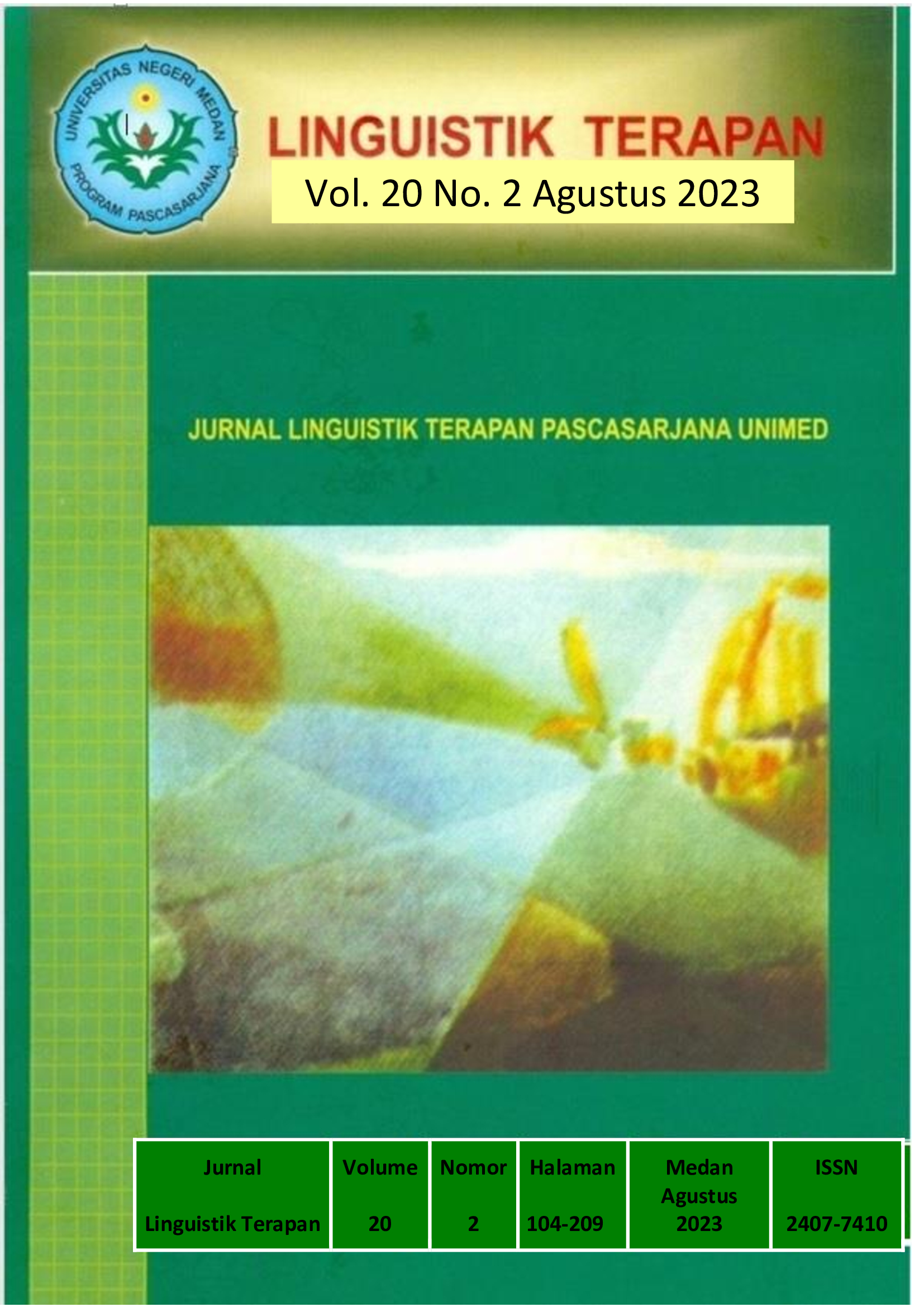THE FUNCTIONS OF IMPOLITENESS ON ASIA™S LEADING AIRLINE INSTAGRAM
DOI:
https://doi.org/10.24114/lt.v20i2.52354Keywords:
Impoliteness, Customers, Affective, Coercive, EntertainingAbstract
The research aims to investigate the Impoliteness Strategies used in customers complaint on Asia™s leading airline official Instagram account. The objective of this research is to elucidate the functions of Impoliteness Strategies used by customers of Asia™s leading airline in giving online complaints on Instagram. This research employed descriptive qualitative research. The sources of data were taken from 52 customers impolite utterances posted on Asia™s leading airline official Instagram account. The result of this research shows three functions of impoliteness strategies found, Affective Impoliteness (62%), Entertaining Impoliteness (21%), Coercive Impoliteness (17%). The most dominant function used by the customers is Affective Impoliteness which earns 62%. Affective impoliteness is the targeted exhibition of strongly elevated emotion, such as rage or anger, implying that the target is responsible for the bad emotional state. Thirty-three affective impoliteness functions were identified on this airline™s official Instagram comments performed in increased emotion, such as anger, which implicates the production of negative emotions.References
Arikunto, S. (2017). Pengembangan Instrumen Penelitian dan Penilaian Program. Yogyakarta: Pustaka Pelajar.
Bodgan, C. (1992). Qualitative Research for Education, an Introduction to Theory and Method. Needham Heights: Allyn and Bacon
Brown, P. and C.S. Levinson, (1987). Politeness: Some Universal in Language Usage. Cambridge: Cambridge University Press.
Culpeper, J. (1996). Towards an Anatomy of Impoliteness. Journal of Pragmatics, Vol. 8, No. 2, pp. 286-292.
Culpeper, J. (2005). Impoliteness and Entertainment in the Television Quiz Show: The Weakest Link. Journal of Politeness Research., Vol. 5 No. 1, pp. 78-88.
Culpeper, J. (2011). Impoliteness: Using Language to Cause Offence. Cambridge:
Cambridge University Press.
Lakoff, R. (1989). The limits of Politeness. Multilingua 8: 101-129.
Leech, G. (1983). Principles of Pragmatics: Longman.
Levinson, C. (1983). Pragmatics Cambridge: Cambridge University Press.
Lincoln. Y. and E. G. Guba. (1985). Naturalistic Inquiry, London: Sage Publication.
Miles, B. (2014). Qualitative Data Analysis: A Method Sourcebook, 3rd Edition. Thousand Oaks: SAGE Publications.
Sugiono. (2006). Metode Penelitian Kulitatif, Kuantitatif dan R&D. Bandung: Alfabeta
Yule, G. (2014). The study of Language. Cambridge: Cambridge University Press.
Downloads
Published
How to Cite
Issue
Section
License
Copyright (c) 2023 Rudi Anshari ., Rahmad Husein ., Meisuri . .

This work is licensed under a Creative Commons Attribution-ShareAlike 4.0 International License.






